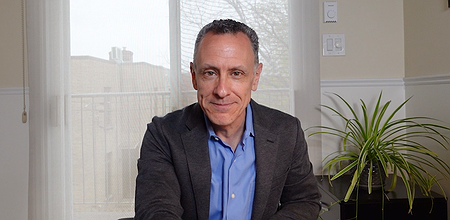- Define the core theoretical principles of Short-Term Dynamic Psychotherapy
- Conceptualize patients’ presenting problems from a dynamic framework
- Implement in-session dynamic interventions to enhance patient insight into unconscious self-defeating patterns and enhance emotional well-being
The Theory and Techniques of Short-Term Psychodynamic Psychotherapy
Dr. Stacy Bradley, Psychologist
Help loosen the maladaptive defenses that prevent the natural processing of emotions.
Excerpt:
- 2h30 of continuing education
- 23 lessons that last from 5 to 15 minutes each
- 1 certificate of achievement
- 1 PowerPoint
- 1 bibliography
- 1 course evaluation
- 7-day money back guarantee
- Unlimited access
- 98% of participants who completed the satisfaction survey declare they would recommend this course to a colleague
Overview
More and more clients are presenting with entrenched relational patterns and chronic emotional avoidance—patterns that resist surface-level intervention and demand work at the level of unconscious process. Yet translating psychodynamic principles into focused, time-sensitive treatment requires specific formulation skills and technical precision that extend beyond traditional long-term approaches.
This intensive workshop provides you with a systematic framework for conducting Short-Term Psychodynamic Psychotherapy (STDP), integrating attachment theory, interpersonal-relational dynamics, and experiential-affective techniques into a coherent clinical method. Led by Dr. Stacy Bradley, an experienced clinical psychologist and training director, the course guides you through the full arc of dynamic treatment—from initial formulation through defense work, affective deepening, and relational transformation.
Master the Core Conflictual Relationship Theme (CCRT) formulation method
You will learn to systematically identify clients' internalized relational patterns through relationship episodes, articulating the precise wishes, anticipated responses, and self-responses that perpetuate psychological distress. This structured approach enables you to formulate cases with clarity and communicate dynamics effectively to clients in ways that mobilize insight.
Work strategically with defensive processes using the Triangle of Conflict
You will strengthen your capacity to recognize defenses as they emerge in session, understand their adaptive origins and current costs, and intervene in ways that invite rather than provoke—creating space for clients to relinquish outdated protective strategies. The training emphasizes differentiating anxiety from core affect and guiding clients through full emotional experiences.
Utilize the therapeutic relationship as a primary instrument of change
You will develop greater facility in recognizing and working with transference manifestations as they occur, using the Triangle of Persons to link past relational templates with current patterns and in-session enactments. The course demonstrates how to facilitate corrective emotional experiences through experiential disconfirmation of clients' relational expectations.
Implement time-sensitive treatment with appropriate case selection
You will refine your clinical judgment regarding which clients are well-suited for brief dynamic work versus those requiring modified approaches, and develop the active, focused therapeutic stance that characterizes effective short-term treatment without compromising depth or relational attunement.
Throughout the workshop, Dr. Bradley illustrates each theoretical principle and technical intervention with detailed case material, including session recordings that demonstrate the moment-to-moment process of dynamic therapy. You will observe how formulations guide intervention choices, how defense work opens access to core affect, and how experiential processing in the therapeutic relationship catalyzes lasting change in clients' internal working models.
By integrating these methods into your practice, you will be equipped to help clients move beyond symptomatic relief toward fundamental shifts in how they experience themselves and relate to others—achieving meaningful therapeutic outcomes within a defined treatment frame.
Accreditation
Collège des médecins du Québec
For physicians who practice psychotherapy, training recognized by the Ordre des psychologues du Québec is automatically considered as activities adopted by the Collège des médecins, in accordance with Article 3 of the Regulation.
For physicians who do not practice psychotherapy, the College evaluates each recognition request based on the following criteria:
- the relevance of the activity to the practice of the profession
- the skills and experience of the trainer
- the quality of the content and its adequacy with the physician's practice
- the pedagogical framework of the activity
- the quality of the documentation provided
- compliance with the training objectives set out in the regulation
- the presence of a certificate of participation or an evaluation
About the expert

Dr. Stacy Bradley, Ph.D. is a registered psychologist and Director of Training for the Halifax Clinical Psychology Residency Program in Nova Scotia. She received her doctoral degree in Counselling Psychology from McGill University.
Dr. Bradley specializes in Short-Term Psychodynamic Psychotherapy (STDP) and provides psychotherapy to adults presenting with complex clinical presentations including anxiety, depression, complex trauma and abuse, PTSD, and personality disorders. Her clinical work integrates attachment theory, interpersonal-relational dynamics, and experiential-affective techniques into time-sensitive treatment approaches.
As a training director, Dr. Bradley has extensive experience teaching dynamic formulation methods, including Core Conflictual Relationship Theme (CCRT) assessment and intervention strategies for working with defensive processes and transference manifestations. Her teaching emphasizes translating psychodynamic theory into focused, practical clinical interventions.
Dr. Bradley has worked across diverse clinical and academic settings including community-based mental health, outpatient hospital programs, private practice, and university counseling centers, bringing a breadth of experience to her training approach.
Learning objectives
Learning material
A theoretical course illustrated with clinical examples. This course is composed of videos of 5 to 15 minutes each. The PowerPoint of the course to download.
Syllabus
- PowerPoint
- 1. Introduction
- 2. Outline
-
Dynamic principles and theories
- 3. Core dynamic principles
- 4. Transference
- 5. What is short-term therapy
- 6. Attachment theory
- 7. Internal working model
- 8. Relational theories
-
Treatment framework
- 9. Goals for treatment
- 10. Formulation
- 11. CCRT
- 12. CCRT Examples
-
Case example
- 13. Tape review part 1
- 14. Tape review part 2
- 15. Tape review part 3
-
Navigating psychological dynamics and defenses
- 16. Triangle of conflict
- 17. Unconscious anxiety
- 18. Defenses
- 19. How to work with defenses
- 20. Confront-Challenge
- 21. Specific defenses
- 22. Tape review part 4
-
Conclusion
- 23. Final notes
- Bibliography
CE Credits
Download a certificate of successful completion.
Audience
This training is intended for mental health professionals.
Your comments
"Dr. Bradley was an excellent presenter---well organized, articulate, animated, and very flexible and inspiring! Loved her videos of actual client sessions which she analyzed based on the principles of short-term psychodynamic psychotherapy.Learned a lot! Highly recommend this course!!"
A psychologist (Canada)
"Very comprehensive - offered depth in terms of theory with clear direction and illustration of how therapeutic principles may be applied."
A psychologist (Canada)
"I thought the course was great. I found Dr. Bradley's imagery quite helpful in understanding core concepts (e.g. not stepping into the shoes, defences as outgrown armour, etc). I will definitely refer back to the notes as I start to do psycho-dynamic work." (automatically translated)
A occupational therapist
"Great, succinct, and well-composed course on short-term psychodynamic therapy. The teacher did an excellent job of explaining core concepts and highlighting the key components."
A counseling (United States)
"The course was very well delivered, and Dr. Bradley translated complex concepts very well. I felt contemplated and inspired." (automatically translated)
A psychotherapist
"I focus on how a client uses language; the actual words used and how they are used. They are our window to the mind. When listening to therapists and teachers I do the same with them. Often therapists don't observe the way they speak and are therefore unaware of unintended messages put out. Intentional speaking especially in clinical encountering is important for me in my work. Thank you for a fine learning experience."
A psychologist (Canada)
Registration
Ask a question
Do you have a question? Then email us at contact@asadis.net
Frequently asked questions
-
Is there an evaluation at the end of the course?
To validate the achievement of the learning objectives, a final evaluation in the form of true/false questions is required. It must be completed in order to obtain the certificate of completion.
In addition, an optional self-assessment is offered at the beginning and end of the course, allowing you to measure your progress on the targeted skills.
These evaluations are not graded and are intended primarily to support your professional reflection.
-
I have a disability. Can I receive specific support?
Yes! This training is offered as a pre-recorded video format, without subtitles. If you have a disability, we can provide an adapted alternative (technical assistance for viewing or individual supervision). For any request, please contact our disability coordinator at the following address: contact@asadis.net
-
How long do I have access to the course?
After your registration, the course is accessible anytime and from anywhere with unlimited access.
-
When does the course start?
That is entirely up to you! When you buy a course, you'll receive an access link that you can activate when you want.
-
Is there a student rate?
Yes there is! To learn more, email us at contact@asadis.net.
You may also be interested in:
Legal notice
The courses offered by ASADIS are accredited by different professional organisations. In addition, ASADIS is approved by the Canadian Psychological Association to offer continuing education for psychologists. ASADIS maintains responsibility for the program.
The CPA’s approval of an individual, group, or organization as a CE Sponsor or Provider is restricted to the activities described in the approved application or annual report form. The CPA’s approval does not extend to any other CE activity the Sponsor or Provider might offer. In granting its approval, the CPA assumes no legal or financial obligations to Sponsors, Providers, or to those individuals who might participate in a Sponsor or Provider’s CE activities or programs. Further, responsibility for the content, provision, and delivery of any CE activity approved by the CPA remains that of the CE Sponsor or Provider. The CPA disclaims all legal liability associated with the content, provision, and delivery of the approved CE activity.






